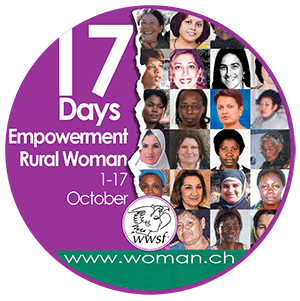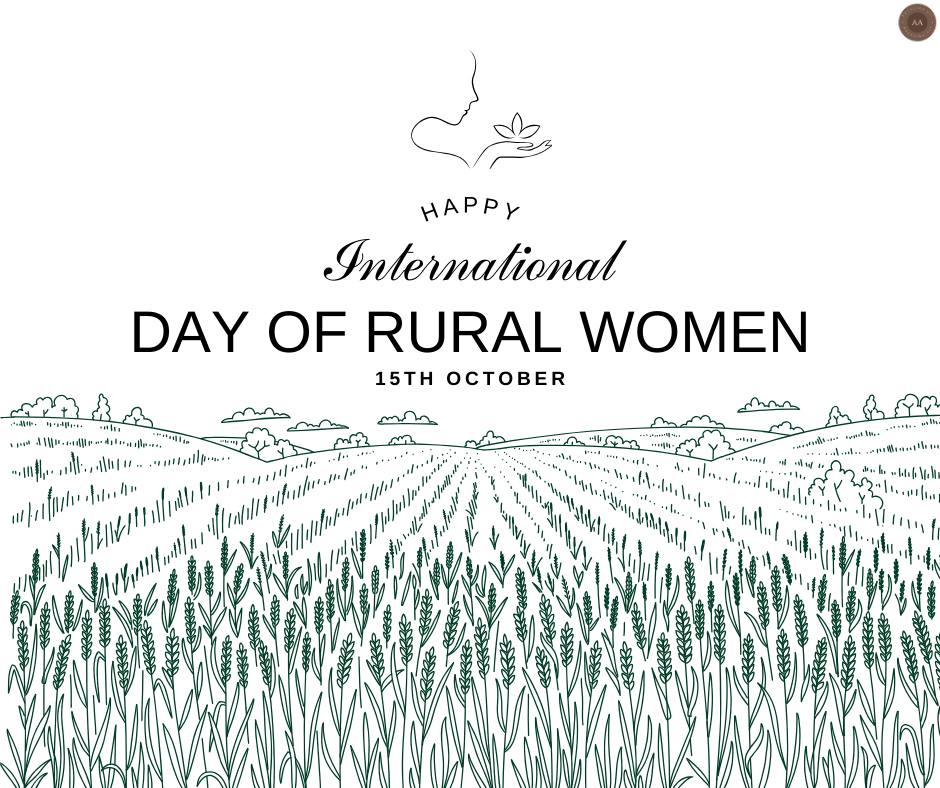October 15th 2023
1995 we gained some space and recognition for rural women, with advocacy Since 2008, the world has marked 15 October as the UN International Day of Rural Women. We advocated for women in rural and remote communities to be recognized for their global importance all year round.
It is a tragic truth of our reality that gender and geography all too often dictate destiny. There have been achievements, there has been progress, and this should be acknowledged. However, the road ahead is long and it is clear that far too many of us will not survive the journey.
Whilst our organization primarily advocates for women in rural communities, we stand as a global sisterhood, highlighting the reality of facing diverse groups around the world whose oppressions are just as intersecting and varied as the conditions in which they’re forced to live. No woman alive – young or old; single, married, or widowed – in the most or least developed part of the world can be identified as suffering only one form of discrimination.
The challenge goes beyond a woman’s need for survival, but the full and complete development of any country, the welfare of the world, and the cause of peace require the maximum participation of women on equal terms with men in all fields.
The rights of all humanity to a decent life, enshrined and agreed by the Universal Declaration of Human Rights, are not too much to ask for women. The realization of these basic rights should not require encouragement, congratulation, or celebration, nor should it be in doubt.
The statistics regarding rural women fluctuate a little each year, but we continue to see that less than 15% of agricultural landholders are women. Resulting in less income security, access to credit for starting a business or improving agricultural productivity, and far less voice in community decision-making. Girls from poor rural households are more likely to be married before the age of 18 than girls from wealthy, urban ones. In some countries, this can mean over 50% of girls are forced into becoming child brides – leading to early pregnancy, higher risks of intimate partner and domestic violence, and further barriers to education, employment, and often sexual and reproductive health and rights.
In every nation, women are subject to intersecting forms of discrimination, violence, and disproportionate poverty. The increase in domestic and gender-based violence during the COVID-19 pandemic shows just how volatile the reality of life is for women around the world – and this has not subsided with the pandemic. As well as undertaking a vast majority of the world’s unpaid care work and obligations relating to family, women are less secure in their employment, less likely to advance or be paid the same as the men around them, and more likely to be attacked in their homes after a day’s hard work. Food and water insecurity are combined with unstable living conditions in many parts of the world. These inequalities manifest in developing and less-developed states but also dominate the lives of women in so-called developed nations. This is a global problem.
Each year, during the Commission on the Status of Women, and during other negotiations, Member States at the United Nations commit to action on a huge number of topics that would address so many of the challenges faced by women in rural and remote communities.
Instead of creating a new list of demands and requests, this year the Network of Rural Women Producers calls on governments to fulfill their commitments, domesticate implementation of international declarations and conventions such as the Convention on the Elimination of All Forms of Discrimination against Women (CEDAW), United Nations Declaration on the Rights of Peasants and Other People Working in Rural Areas (UNDROP), and the United Nations Declaration on the Rights of Indigenous Peoples (UNDRIP).
Today we call for meaningful action.
We would love to see a perfect world.
We need to see a better one. Now.
A message from our President Mrs Gia Gaspard Taylor


